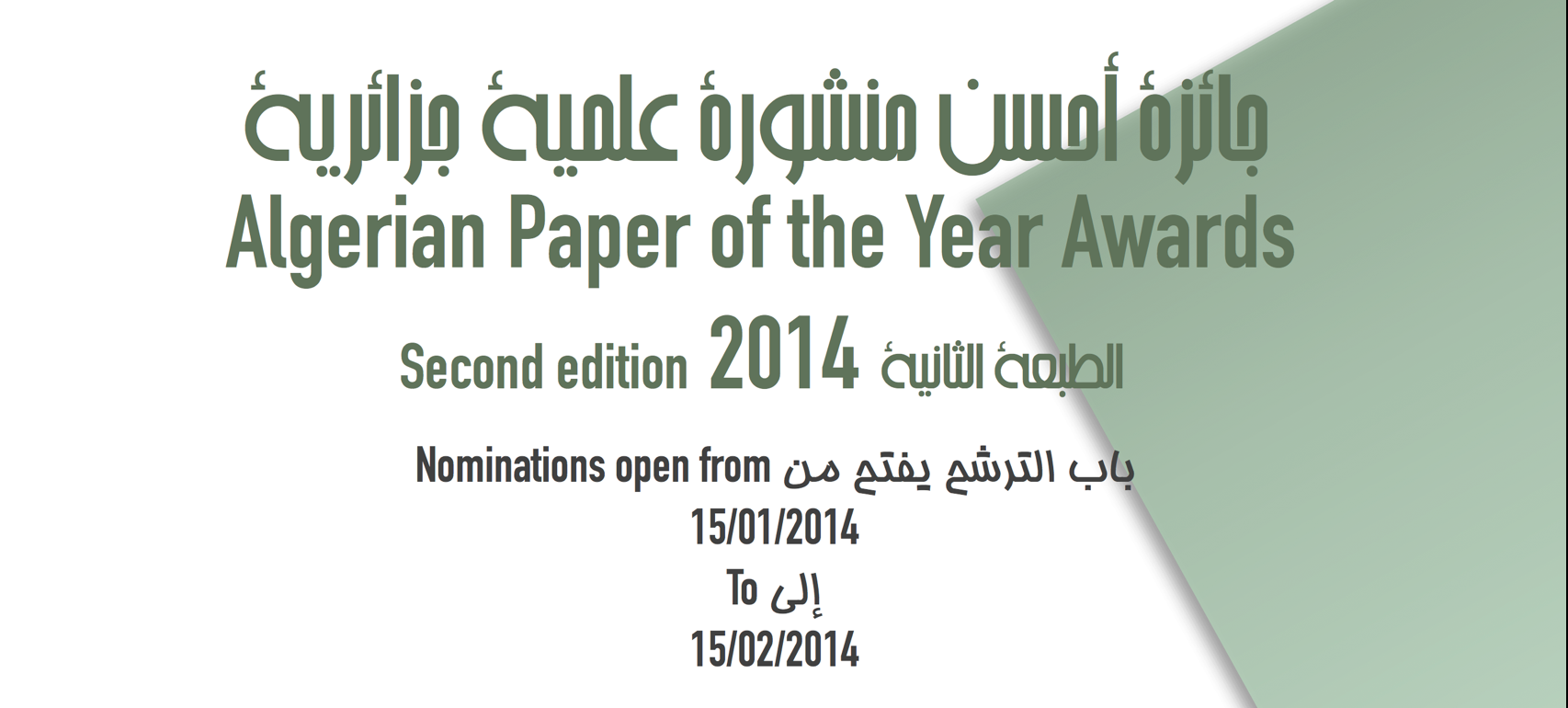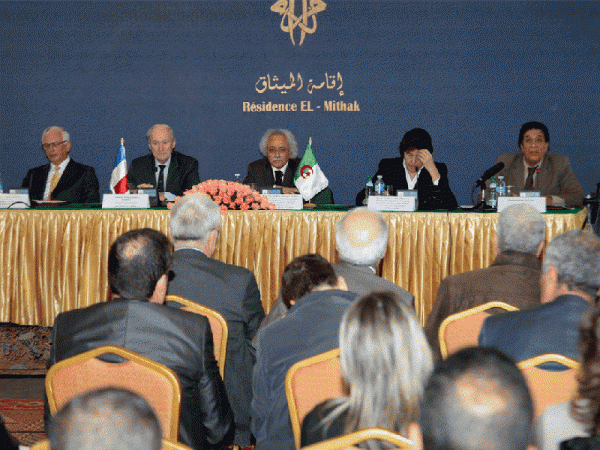Launching Inspire Magazine
Just over a year ago, a group of junior Algerian researchers and practitioners met at the Waterloo Campus of King’s College London to attend the fifth general meeting of the Algerian Postgraduates in the UK network. On the agenda was an open discussion to explore the future directions of this informal network which, since its establishment in 2007, has focused on nurturing and serving its young community in the UK.
As discussions unfolded, the views of those present at the meeting converged towards a common vision for the future: that it was time to strengthen our connections with the wider community of Algerian scientists, researchers and practitioners, particularly those based in Algeria. The conclusion endorsed by many was that we needed a medium to nurture and sustain a wider intellectual community and help build bridges between us and our counterparts across the globe.
A project was launched shortly after the meeting to contribute towards developing such a medium. It was dubbed the Algerian Network for Academics, Scientists and Researchers (ANASR) and work on it was to commence by implementing an interactive online space for networking and exchange (see: anasr.org).
Like many developing countries, Algeria has long suffered from brain drain. Different sources give different figures of its exact extent, but all estimates are frightening with numbers reaching the hundreds of thousands of Algerians who hold key positions in their host countries. Added to that is the growing phenomenon whereby Algerian university graduates who acquired a state scholarship to study abroad seldom return to their homeland upon completion of their studies. The detrimental effects of the ensemble of these circumstances are indeed hard to measure, but there is no doubt that they translate into considerable loss of resources.
Inside the country, official sources have declared that there are currently around 600 researchers per million inhabitants, falling fairly short of the universal average of 1088. The Algerian Ministry of Higher Education and Scientific Research has recently expressed its eagerness to triple this number to reach a total of 68 000 researchers by 2020. The recent raise in the national budget for scientific research, the reactivation of the National Research Council for scientific research, and the introduction of the LMD system (Bachelor, Master, Doctorate) in higher education were amongst the measures put in place to boost numbers. Other measures, such as the launch of the National Research Projects (PNR) in 2010, were also designed to lure back researchers from overseas and increase their input through joint collaborations with local researchers.
The success of these measures has been challenged, however. For example, reconciling the LMD and the classical systems has been problematic. And although praiseworthy, no more than a couple of hundred researchers who are based abroad had expressed interest to join PNR programs, a number that was attributed to not only the lack of resources and appropriate infrastructures, but also the unattractive socioeconomic status of the researcher in Algeria.
The two latter points are of paramount importance. Often overlooked is the fact that, as Algeria prepares to celebrate 50 years of independence, the development of a robust national strategy for scientific research has had a relatively late start. The synergetic contributions of both local researchers and those based overseas are therefore crucial for founding a strategy robust enough to face contemporary challenges.
 In the midst of these circumstances, an increasing number of organisations, associations and learned societies have emerged in recent years, both inside and outside of the country, all sharing a common aim of strengthening and focusing the potential of Algerian talent and expertise. Anasr.org is therefore by no means a unique endeavour. With its focus on online interaction and publication however, it aims to contribute to these efforts by banking on the tremendous potential of the internet to offer an alternative channel of communication. By focusing on online interaction, we hope to ensure effective, economic and rapid dissemination and sharing of information as well as support collaborations that transcend borders.
In the midst of these circumstances, an increasing number of organisations, associations and learned societies have emerged in recent years, both inside and outside of the country, all sharing a common aim of strengthening and focusing the potential of Algerian talent and expertise. Anasr.org is therefore by no means a unique endeavour. With its focus on online interaction and publication however, it aims to contribute to these efforts by banking on the tremendous potential of the internet to offer an alternative channel of communication. By focusing on online interaction, we hope to ensure effective, economic and rapid dissemination and sharing of information as well as support collaborations that transcend borders.
While we continue to develop anasr.org, we are launching Inspire Magazine today with a simple editorial mission: to promote and inspire Algerians across the globe while building bridges between scientists, researchers and practitioners inside and outside of Algeria by exposing their work and achievements to each other.
Why are we doing this? And what motivates us? We very much believe in the universal character of scientific and expert knowledge and in the communal nature of the effort required to promote it. But we also strongly believe in striving to shape knowledge that embodies our values and serve the needs and concerns of our society.
We are convinced that together, Algerian academicians, scientists, researchers and practitioners inside and outside of the country have a pivotal role to play in shaping and articulating paths towards a prosperous future for Algeria in particular and the world in general. We therefore find that a key aspect of fulfilling such a role is to engage positively with one’s peers through a spirit of:
- Openness: in sharing of information and interaction between peers.
- Participation: in developing ideas and realising them in practice.
- Cooperation: between individuals, groups and organisations who share the same aspirations.
Anasr.org and Inspire Magazine aim to contribute towards promoting this spirit of participatory work for the advancement, accessibility and exchange of knowledge.
We strongly agree with the idea that this endeavour must develop organically from within the community rather than be merely handed down by institutions. As we put our first steps on the path of realising this mission, we are doing so without external funding, on a voluntary basis and not for profit. The success of this endeavour will therefore heavily depend on the support and active engagement of the wider intellectual community that we wish to engage with.
This is then an invitation to all academics, scientists, researchers and practitioners to come together, discover each other’s work, share experiences, and to learn from and inspire one another. Please join us, read and write for Inspire Magazine, spread the word to help us realise this mission. We at Inspire Magazine will in turn strive to promote you, your opinions and your work by dedicating our efforts to making this magazine your channel to engage with your peers and the wider public. If you will, you can start here.
[ Note: This article was first published as an editorial article on Inspire Magazine ]





